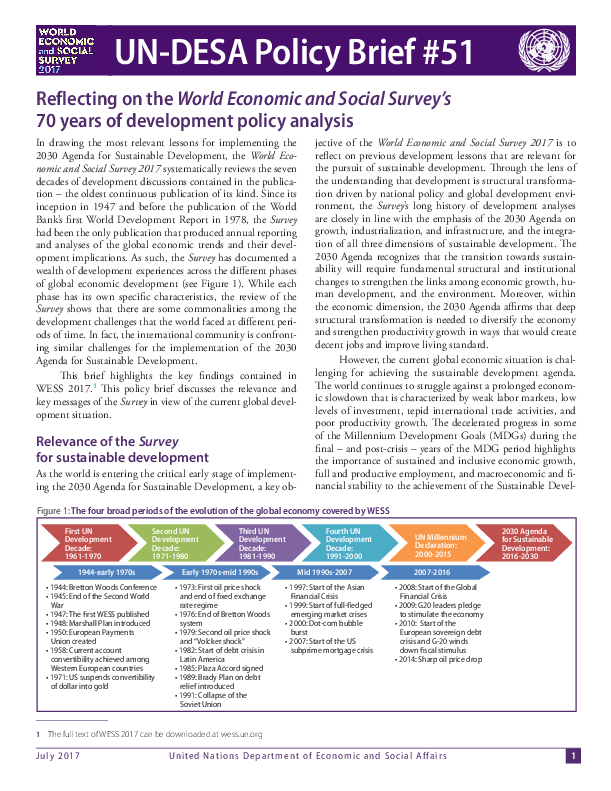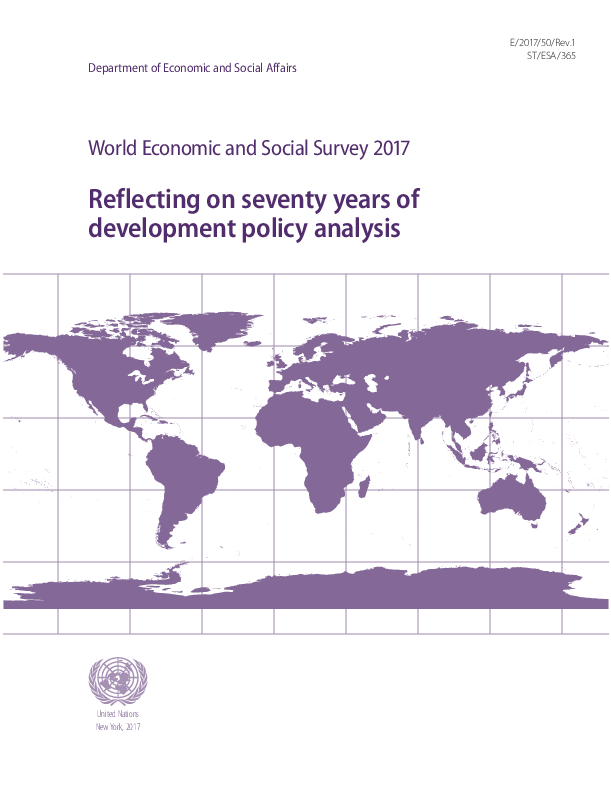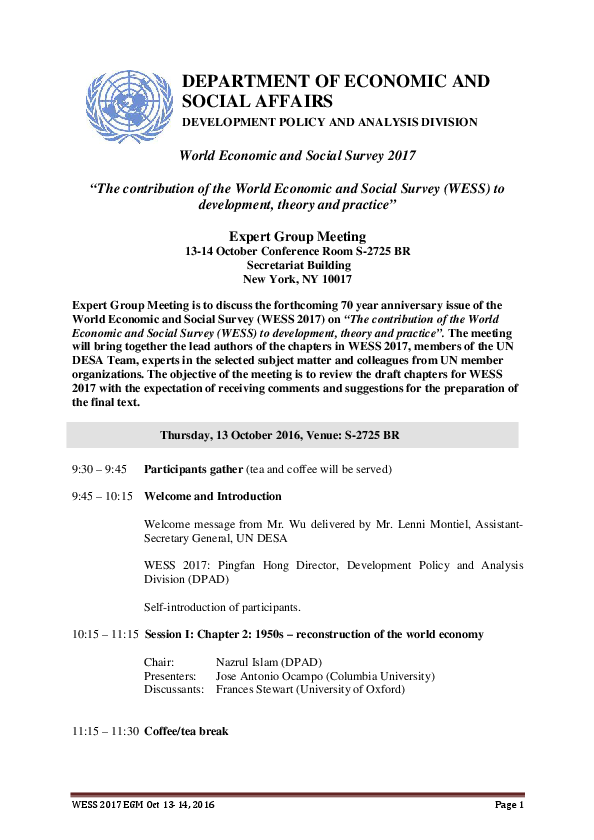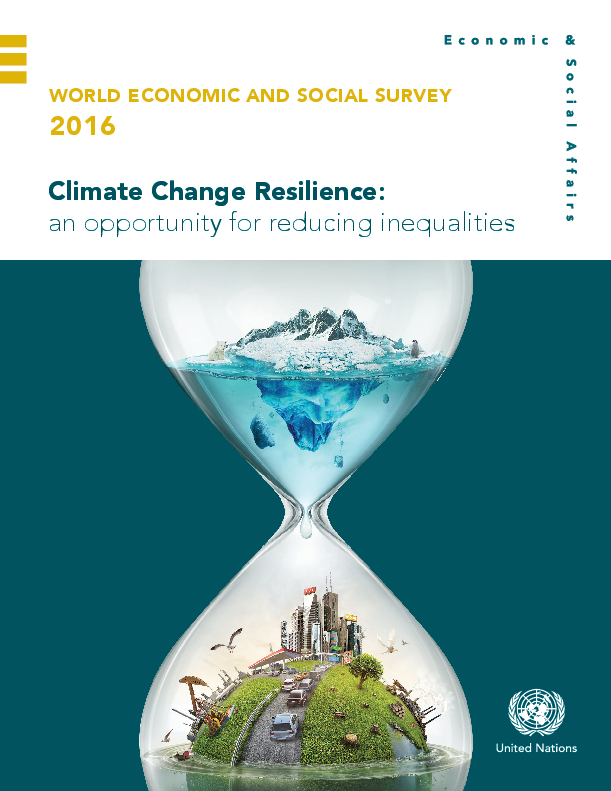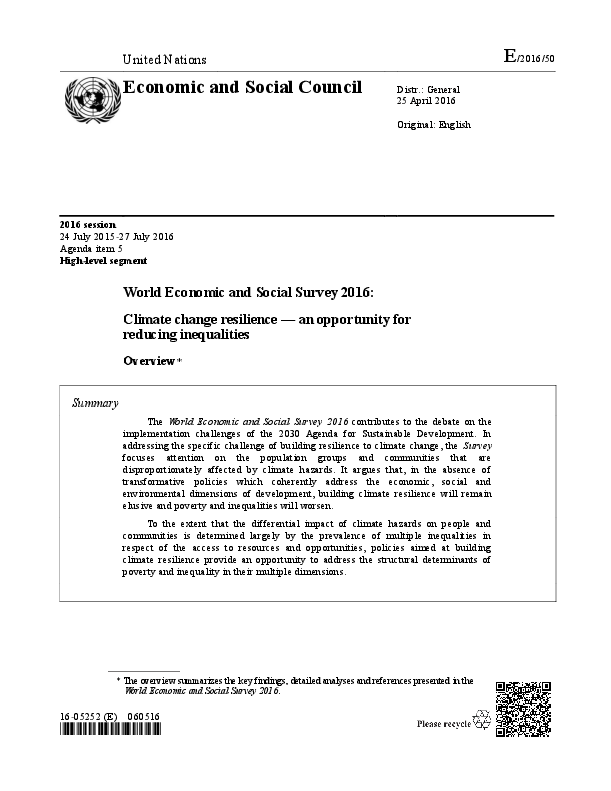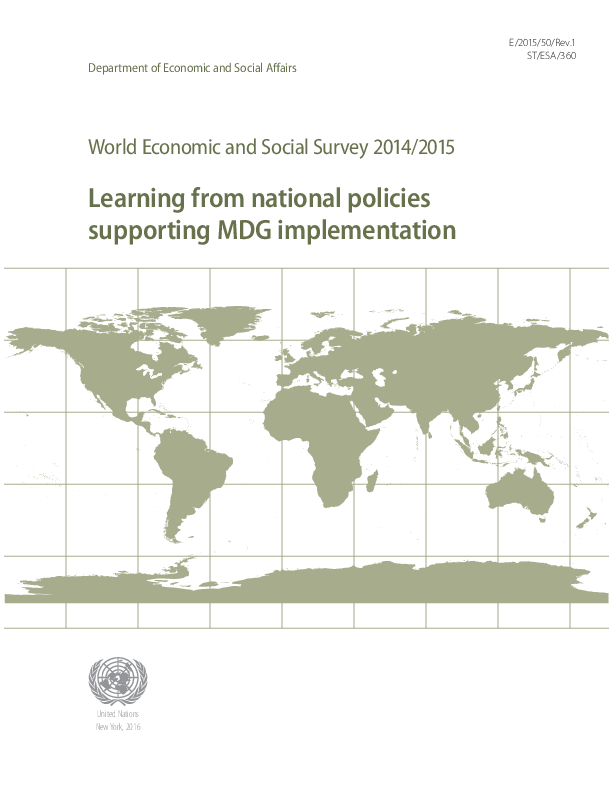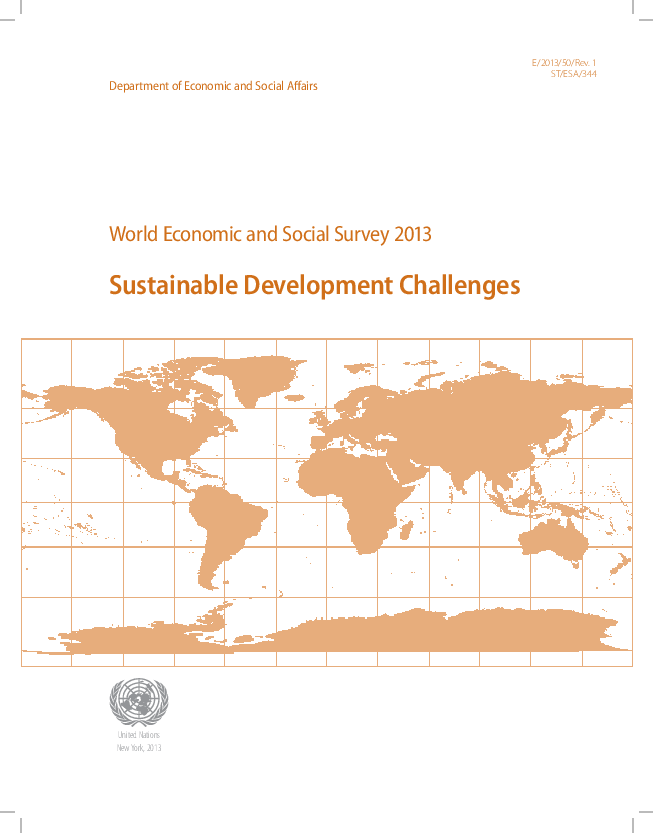Publications
Displaying 1 - 10 of 94
The 2014 World Economic and Social Survey notes that the inequality within countries has increased markedly in recent decades. The majority of the world's population lives in countr
The world is faced with challenges in all three dimensions of sustainable development: economic, social and environmental. For instance, more than 1 billion people are
 Welcome to the United Nations
Welcome to the United Nations
